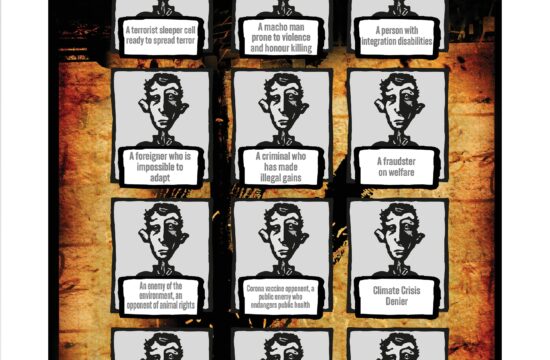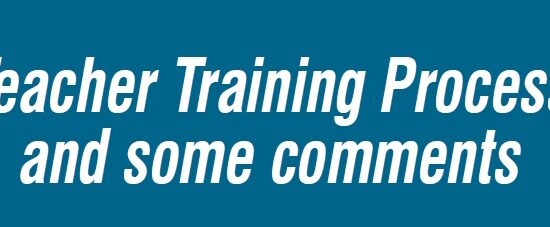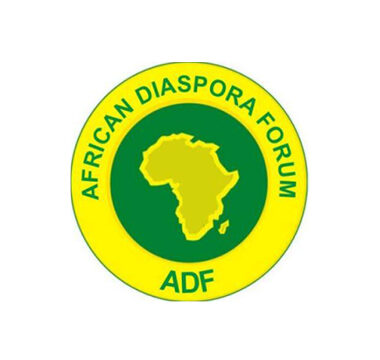Prof. A. Reis Monteiro
University of Lisbon – PORTUGAL
An International Commission on the Futures of Education, composed of eighteen members, established by UNESCO in 2019, prepared the Report Reimagining our futures together: A new social contract for education published in November 2021. It has an introduction, three parts, an epilogue and appendices.
– The Introduction, after pointing out that the survival of humanity is at risk, justifies the need for a “new social contract for education”, which implies the redefinition of the ends of education.
– Part I contains a general diagnosis of the state of education and the world, in two chapters, highlighting the effects of poverty, the threats to the planet, the erosion of democracy and the future of work.
– Part II proposes the renewal of education, in five chapters, focused on “pedagogies”, “curricula”, “teachers”, “schools” and “education throughout life”, each one concluding with four “Principles for dialogue and “action”.
– Part III, with two chapters, calls for a new research and innovation agenda for education, as well as global solidarity and international cooperation. Each chapter concludes with “four key priorities”.
– The “Epilogue and continuation” makes proposals for a new social contract, calls for action through dialogue and participation, and invites continuation and “actualisation” by all those working in the education field.
1. The “new social contract for education”
According to the Report “Forging a new social contract for education is a critical step towards reimagining our futures together.” The starting point of the new social contract is “a shared vision of the public purposes of education”, for enabling “individuals and communities to flourish together”. It requires not only “adequate and sustained public funding for education” but also “a society-wide commitment to including everyone in public discussions about education”.
The new social contract is about the urgency to “reinvent education to help us address common challenges. This act of reimagining means working together to create futures that are shared and interdependent.” It must be based on human rights principles and, in particular, on the right to education, especially on “two foundational principles”, namely: “an expanded vision of the right to education throughout life, and the strengthening of education as a public and a common good”. What is intended is “to think differently about learning and the relationships between students, teachers, knowledge, and the world”.
2. For “renewing education”
The new social contract points to “five dimensions for changes needed” in education: pedagogies, curricula, teachers, schools, education throughout life.
• Pedagogies
“Pedagogy should be organized around the principles of cooperation, collaboration, and solidarity”, for “replacing longstanding modes of exclusion and individualistic competition”. It “should be based on shared principles of nondiscrimination, respect for diversity, and reparative justice, and framed by an ethic of care and of reciprocity”. It is a “work of creating transformational encounters that are based in what exists and what can be built”.
• Curricula
“In a new social contract for education, curricula should grow out of the wealth of common knowledge and embrace ecological, intercultural and interdisciplinary learning that helps students access and produce knowledge while building their capacity to critique and apply it.” Also: “Curricular approaches should link the cognitive domain with problem-solving skills, innovation and creativity, and also incorporate the development of social and emotional learning and learning about oneself.” With the aim “to unite and liberate”, their priorities “are intended to support inclusion, gender equality, the dismantling of injustices, and the broad struggle against inequalities needed to reimagine our futures together”. In other words, curricula and learning must be shaped by “human rights and democratic participation” as “foundational principles”, in order to “transform people and the world”.
• Teachers
“Teachers remain central to the futures of education”, but the teaching profession’s appeal is increasingly eroded. “A strong professional identity for teachers should be encouraged.” Teaching should be recast as a “collaborative profession” and teachers “recognized as reflexive practitioners and knowledge producers” who “contribute to growing bodies of knowledge needed to transform educational environments, policies, research, and practice, within and beyond their own profession”. Accordingly, “talented candidate [should be selected] providing them with high quality and relevant initial preparation, supporting them effectively in the first years of teaching and with continuous professional development, structuring teacher jobs in ways that foster collaborative professionalism”.
• Schools
“To enable pedagogies of cooperation and solidarity and strengthen relationships with the knowledge commons, it is crucial to have times and spaces dedicated to these purposes.” School is “one of humanity’s most essential and powerful educational institutions”. If it “did not exist, we would need to invent it. Schools are a central component of larger educational ecosystems. Their vitality is an expression of a society’s commitment to education as a common good. Schools provide children and youth with unique environments to participate in the knowledge commons.” However: “To achieve what we need them to achieve, schools must break with the rigid, uniform organizational models that have characterized a large part of their history over the past two centuries. Renewal is vital.” Its “organizing principles should centre on inclusion and collaboration.” Schools should be “reimagined to better promote the transformation of the world towards more just, equitable and sustainable futures”. Consequently: “All schools, regardless of who organizes them, should educate to advance human rights, value diversity, and counter discrimination.”
• Education throughout life
“The right to education needs to be broadened to be lifelong and encompass the right to information, culture, science and connectivity.” It “will need to apply more clearly to all people, and not only children and youth. It will need to more clearly address education that takes place across a multitude of sites, and not only classrooms and schools.” In other words: “An expanded right to education throughout life requires commitment to breaking down barriers and ensuring that the knowledge commons is an open and lasting resource that reflects the diverse ways of knowing and being in the world.”
• Other proposals
– A new new research agenda centred on the right to education and “inclusive of different kinds of evidence and ways of knowing”.- “A call for global solidarity and international cooperation” to meet the “needs of asylum seekers, refugees, stateless persons and migrants, in particular”.
3. After the Faure Report (1972) and the Delors Report (1996), a failed Report
I deeply regret to conclude that this Report is deceiving when compared with its two other similar predecessors: Learning to Be: The world of education today and tomorrow or ‘Faure Report’ (1972), and Learning: The treasure within or Delors Report (1996). This conclusion does not put into question, of course, the personal competence of the members of the International Commission. It only results of an appraisal of their collective choices.
The Faure Report was prepared by an International Commission on the Development of Education, composed of seven members, chaired by Edgar Faure, former French Prime Minister and Minister of Education, whose mandate was to elaborate and make proposals on the future of education. It was an unprecedented initiative.
The Faure Report had an overt French and Enlightenment pedigree, as well as New Education Movement inspiration, which is also ingrained in UNESCO philosophical roots.
Elaborated in the wake of the Mai 1968 students’ unrest, it had a rather philosophical-pedagogical tone, with an optimistic perspective, trusting the Welfare State. It strived to rescue the profound humanist sense of education from its economicist instrumentalisation, and to propose a true democratisation of education, which requires “lifelong education as the master concept for educational policies in the years to come for both developed and developing countries” that “is the keystone of the learning society”. An ideal taken up, a quarter century later, by the Delors Report.
The Delors Report was prepared by an International Commission on Education for the Twenty-first Century, composed of fifteen members, chaired by Jacques Delors, former President of the European Commission (European Union), with a mandate similar to that of the Faure Report.
The Delors Report was prepared in a different context, that of mounting Globalization of the world and of the dominating neoliberal ideology that was undermining State’s functions and increasingly opening economic and social doors to private powerful actors. While sharing the main concerns of the Faure Report, mostly the trend to marketisation of education, and reaffirming its principal ideas, in particular the priority of education as an end in itself, it had a more realistic and political tone. It proposed a conception of Learning throughout life – both lifewide (spatial dimension) and lifelong (temporal dimension) – as “the key that gives access to the twenty-first century”, leading to “a learning society”. Its most known sentence is that encapsulating the global purpose of education: “Education throughout life is based on four pillars: learning to know, learning to do, learning to live together and learning to be.”Learning to live together was emphasised as “a necessary Utopia”.
We may consider that what is expected from this kind of Reports may be summed up in the following traits:
– To reflect the universal values of the United Nations and UNESCO
– To account for the most general criticism of the state of education
– To lend their authority to the most advanced pedagogic thought
– To put forward original, inspiring and ‘utopian’ insights
The Faure and the Delors Reports resorted to human rights, in particular the right to education, and strongly reflected UNESCO’s universal humanism. They shared the most common criticism of education and endowed with their authority advanced proposals for its transformation, but they did not limit themselves to echoing ideas. They offered sentences and insights that are ‘utopian’ “to the extent that any undertaking which aims at changing the fundamental conditions of man’s fate necessarily contains a utopian element”, as reads the Faure Report.
The idealism of both Reports could not avoid ideological and ‘pragmatic’ criticism, but while it is not easy to assess their effects on educational policies, their significant doctrinal influence is beyond doubt.
Another UNESCO Report deserves to be mentioned: Rethinking education: Towards a global common good? prepared by a Senior Experts’ Group and published in 2015, in the context of the preparation of the Incheon World Education Forum.
The new Report under review is obviously committed to the United Nations and UNESCO values and principles, which are those of human rights and, in particular, the right to education. They are invoked as the normative framework of the “new social contract for education”, but the Report does not go far in drawing the theoretical, political and practical consequences of their ethical-juridical legitimacy. The Report also ignores the rights of the child, which are not mentioned once.
One hardly finds something new in this Report:
– New social contract is a frequently used label, and its two foundational principles have already been put forwards, as we saw: right to education throughout life, and education as a public or common good.
– Education is recognised as a human right to quality education, but the quality criterion is never identified. It seems more focused on the instrumental role than on the personal signification of education.
– The “digital revolution” is approached with some detail, but the wave of privatisation of education is mentioned only in passing and the primary States’ responsibility for human rights is not highlighted enough.
– The Report displays along its around 150 pages a somewhat anarchic litany of repetitive exhortations. It lacks the density and sobriety of a sound doctrinal compass.
– Its lightness and redundancy are epitomised in the following sentence at the ending page: “This Report is an invitation to think and act together in building the futures of education together.”
In sum: The present Report lacks philosophical-pedagogical-political breath. Most of its contents could be found in a report by the Organisation for Economic Cooperation and Development (OECD) or even a World Bank Report. It is a lost opportunity.
What could it have been?
Conclusion
The densest sentence of the Report is probably the quotation from Mahatma Gandhi heading Chapter 4:
The real difficulty is that people have no idea of what education truly is. We assess the value of education in the same manner as we assess the value of land or of shares in the stock-exchange market. We want to provide only such education as would enable the student to earn more. We hardly give any thought to the improvement of the character of the educated. The girls, we say, do not have to earn; so why should they be educated? As long as such ideas persist there is no hope of our ever knowing the true value of education.
The significance of these words could have been explored in many directions to examine the value of education for the present and future of the humankind.
The International Commission could have put a stronger premium on the human right statute of education when examining its worldwide realities and rethinking its contribution to redressing many evils, both in families and schools, in rich and poor countries. This could have led the Commission to the following main conclusions:
– As a human right, education is an ethical value and a legal power and should be pedagogically and politically empowering and liberating. This means that the right to education is not whichever right to whichever education.
– The right to education is the right to a quality education whose criterion should be its normative integrity as agreed in International Education Law and reverberated in numerous national Constitutions and Education Laws.
– States are the principal responsible for the provision and regulation of the right to education. Their obligations include the establishment and financing of a public system of education and the protection of the right to education against its moral and economical instrumentalisation by private actors.
– The most powerful social contract could be a Convention on the Right to Education consolidating and densifying the normative content of the right to education according to its evolution – conventional, not-conventional, jurisprudential, doctrinal – from the 1948 Universal Declaration.
The International Commission could have started from the Faure Report and the Delors Report (evoked in the Foreword by UNESCO Director-General, but only the Faure Report is mentioned once in the Report), to take stock of their diagnosis of the ills of education, of the remedies proposed, of the vision inspiring them, in order to assess what progress has been made, what dead ends remain, what new problems have emerged, and to point, at the present juncture, what human beings we can and should want to become.
The International Commission could have concentrated its work in the school institution and the teaching profession. This could have been its most resounding contribution for a vision of education up to present and future times: reimagining the vital mission of school and the unique identity of the teaching profession, so that their gravity centre becomes no more just the ‘transmission’ of knowledge.
The International Commission also could have chosen an approach of its mandate combining the precedent approaches, in a luminous and enrapturing way, to produce a Report likely to become a milestone in UNESCO’s history.











